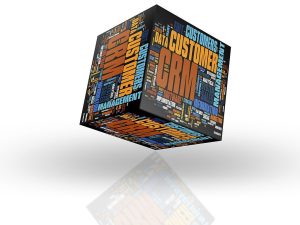In a Customer Relationship Management (CRM) is a significant and valuable feature that focuses on managing and improving interactions with customers. As part of an ERP system, CRM modules are designed to integrate with other core functionalities like finance, human resources, inventory, and more, creating a centralized platform for managing various aspects of a business.

Customer Relationship Management (CRM) offers numerous benefits to businesses across various industries. Some of the key advantages of a CRM include:
- Enhanced Customer Relationships: CRM helps businesses build and maintain stronger, more personalized relationships with customers. By centralizing customer data, employees can access comprehensive information about each customer, enabling them to understand their needs, preferences, and purchase history. This knowledge allows for more meaningful interactions and personalized customer experiences.
- Improved Customer Satisfaction: With a deeper understanding of customer preferences and requirements, businesses can provide better customer service and support. Quick access to customer information and the ability to resolve issues promptly lead to increased customer satisfaction and loyalty.
- Increased Sales and Revenue: CRM systems facilitate better lead management, sales tracking, and automation of sales processes. By providing sales teams with valuable insights and lead prioritization, CRM helps boost sales productivity, close more deals, and increase revenue.
- Efficient Marketing Strategies: CRM enables businesses to segment their customer base and target marketing campaigns more effectively. By tailoring marketing efforts to specific customer groups, businesses can increase the effectiveness of their marketing campaigns and maximize their return on investment (ROI).
- Streamlined Business Processes: Automation features in CRM systems help streamline various business processes, reducing manual tasks and administrative overhead. This leads to increased operational efficiency and productivity across the organization.
- Data-Driven Decision Making: CRM systems provide valuable analytics and reporting capabilities. By analyzing customer data and trends, businesses can make informed decisions and adjust their strategies to align with customer needs and market demands.
- Improved Cross-Selling and Upselling Opportunities: A comprehensive view of customer behavior and purchase history allows businesses to identify cross-selling and upselling opportunities. CRM systems help in suggesting relevant products or services to customers, leading to increased sales and higher customer lifetime value.
- Better Customer Retention and Loyalty: Satisfied customers are more likely to stay loyal to a brand. With CRM, businesses can proactively engage with customers, address concerns promptly, and offer personalized incentives, leading to improved customer retention rates.
- Enhanced Team Collaboration: CRM centralizes customer data and interactions, fostering better communication and collaboration among different departments. This enables teams to work together more efficiently, ultimately benefiting the entire organization.
- Scalability and Flexibility: CRM systems are designed to adapt to the changing needs and growth of a business. As a company expands, CRM can accommodate more data and users, ensuring that the system remains relevant and useful in the long term.
In summary, CRM offers a wide range of benefits that contribute to improved customer relationships, increased sales, streamlined operations, and data-driven decision-making, ultimately leading to business growth and success.






